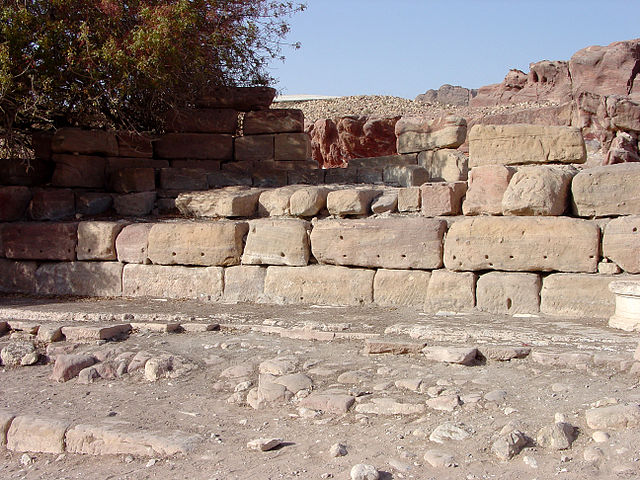

|
Spelling and Pronunciation of Arabic |
The spelling of Arabic words in English is subject to many vagaries, not least the alternation of e and a, as in Kerak and Karak, al- and el-, and many other examples. In general, these web pages use the Blue Guide spelling, which follows the a convention. Alternate spellings, for common place-names and a few other words, are supplied in the text. Handling of diacritic marks, diphthongs, and the half-dozen Arabic varieties of "k" are beyond the scope of this text.
Pronunciation in English of Arabic words follows no common rule, even among experts. The few suggestions in the text are only that – suggestions, based on the casually overheard pronunciation of American field archaeologists. The one good rule is that q should be pronounced as a hard k, for example, "Qasr" (palace) is pronounced "Kasser."
A very few general words of Arabic vocabulary are given below, by way of example. See the Glossary And Index Of Asian Art, on this website, for many more.
'ain:
a freshwater spring, for example, 'Ain Musa = "Moses' Spring"
al-, el-, ad-, ed-, as-, es-:
"the," For example, al-Khazneh, "The Treasury;" ad-Deir, "The Monastery;"
as-Sadaqa, etc. The final
consonant is taken, according to various complicated linguistic rules, from the initial consonant of the following word.
jabal: a mountain.
khirbet: ruins.
qasr: a palace.
siq: a canyon.
umm: (1) mother, or (2) great: "umm al-ma'arik" = Mother of Battles (bad translation) = Great Battle (better translation.)
wadi:
a desert river valley that is seasonally dry, but subject to flooding during the rainy season.

|